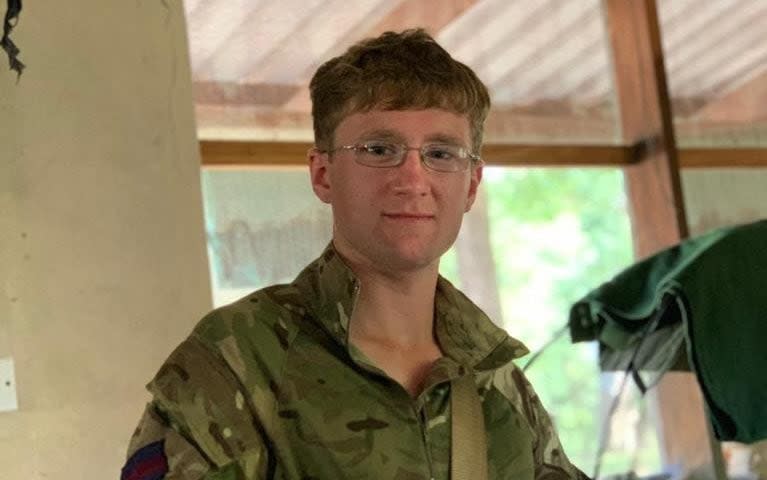Soldier killed by elephant died after army bosses underestimated time to get to a hospital, report finds

A soldier killed by an elephant while on an anti-poaching patrol died after army bosses underestimated how long it would take to get to a hospital, a report has found.
Guardsman Mathew Talbot of the 1st Battalion the Coldstream Guards was fatally injured in the incident in Liwonde National Park in Malawi on May 5 2019.
The 22-year-old was part of a five-man mixed Malawian and British patrol, deployed as part of an anti-poaching operation when he was attacked by the elephant and suffered multiple serious injuries.
A Ministry of Defence (MOD) service inquiry, published on Friday, found that when Gdsm Talbot died during an evacuation four hours and 17 minutes after the attack, he was still three hours away from the nearest hospital.
That was despite an Army risk assessment stating casualties should reach hospital within four hours of an incident, known as the "medical timeline".
Because of the assumptions the timeline was achievable, the lack of any available medical helicopter was never considered an issue.
The report also found supplies of the three treating British Army medics were "just adequate", but praised their actions as having given Gdsm Talbot a fighting chance.
However, a key vital signs monitor failed to work correctly, there were a lack of blood products and confusion over when powerful pain medication could be used on patients with head injuries and breathing trouble.
As a result, the seriously injured soldier had no pain relief while he was being transported.
A consultant-led post-mortem examination found the young soldier's death was "not preventable" given the circumstances.
But the report concluded Gdsm Talbot would have had a 50%-60% chance of survival had he reached a hospital in Blantyre some 160km away.
"The underestimation of the medical timeline and the resources in place to assure it were inadequate," the report concluded.
Along with 30 other recommendations, the report also called for immediate improvements to training.
In a statement released through lawyers Irwin Mitchell, the soldiers' parents Steven and Michelle Talbot said it had it had taken months "to get any of the answers" from the Army.
They said: ""Those that are responsible for putting these risk assessments in place should hang their heads in shame if they think this is adequate for our brave serving soldiers who are prepared to put their lives on the line for Queen and country.”
An inquest into the soldier's death will take place at Oxford Coroner's Court in due course.
In a statement released through the Ministry of Defence, Brigadier Ben Cattermole, Commander 11 Brigade, said the Army's "thoughts and sympathies" were with the bereaved.
He added: "The welfare of our personnel is of the utmost importance and the MOD has accepted all of the recommendations in this report, including robust training to better assess the risk of animal attack and fully rehearsing medical procedures before operations begin.
"We have already put in place plans to implement these recommendations and changes will be made as soon as possible.
"The MOD will review the coroner's findings when available and address any additional recommendations."

 Yahoo News
Yahoo News 